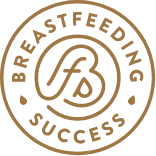By Ali Weatherford
The focus of our last article was tandem nursing, which usually means breastfeeding a toddler and a newborn at the same time. A lot of people do not plan to breastfeed a toddler, but most babies start “toddling” between 9 and 18 months of age! The recommendation by the American Academy of Pediatrics (AAP) and many other organizations including the World Health Organization (WHO) and UNICEF is to continue breastfeeding with adequate complementary foods for at least 2 years and beyond as mutually desired.
That means that people who are following these guidelines are breastfeeding a toddler! That baby might only be 10 months old or might be two years old. Either way, this is a walking (maybe talking) kiddo that is still getting breastmilk.
I have heard something similar to this comment over and over, “If the kid can walk up and ask for milk, that’s weird and time to stop.” But is it really?
The “natural” age for weaning is a big range. It really depends on who you’re talking to, the culture and what period in time you’re talking about. There are so many interesting things to read about this. It’s been tackled from a historical perspective, an evolutionary perspective, and by biologists and anthropologists. They come to a lot of different conclusions, but the average age of weaning is somewhere between two and four years. There are places and times where children are weaned earlier than that, but also later! So breastfeeding a “toddler” is actually not at all unusual or “weird”.
Perceptions
Many people in the United States perceive that it’s unusual to breastfeed a toddler because we just don’t see it much or at all. The reality is that many people do this, but it happens at home. I did not breastfeed my toddlers in public very often, or at all.
When I had younger babies, I breastfed everywhere. I have very literally nursed babies on trains, on planes, in restaurants, libraries, parks, stores and churches. When those babies needed to eat, my milk was what was available. I never felt awkward or judged. Once they were eating some solid foods, I started offering them other snacks when we were out.
I definitely felt that nursing a toddler in public was different. I know that a part of me was worried about what people would think, and that’s just an unfortunate reality. But I also liked wearing bras and clothing that didn’t have to be breastfeeding friendly sometimes.
Also, my toddlers were easily distracted, and breastfeeding might only last for a minute or two before they were running off. That made it more frustrating for me, and I started offering a snack instead. At least they could eat that “on the go”. Nursing became something we only did at home, and it was usually just around bedtimes when they could lay down, be still, and nurse for a significant amount of time, or when they needed some extra comfort. It was especially beneficial when they were sick.
Are there benefits to continued breastfeeding?
Yes. Although toddlers have very different needs from newborns and younger babies, there is evidence that breastfeeding does continue to provide benefits. But they’re also not completely dependent on milk for their nutritional needs. Babies usually start eating solid foods at around six months of age. At first, it’s just a very small part of their daily intake, but it gradually increases until they are eating a lot of solid foods, and breastfeeding becomes a smaller and smaller part of their daily intake. This tends to happen gradually, and we don’t get to witness it happening out in the world very often.
It’s hard to say exactly what kind and how much benefit there continues to be after age two. There just isn’t much research for that, but the suspicion is that breastmilk does continue to offer some nutritional benefits that they might not get from other food sources. It also can continue to provide an emotional benefit. A two year old is still very much a baby in so many ways. They may or may not be able to communicate effectively and it can still be hard to understand what is happening if they seem upset. Nursing can be helpful in this way for sure. It’s something consistent that the baby has always had, and it’s comforting.
Nursing can also help with bonding. Of course, there are plenty of other ways to bond with our children, but this might be an easy and special way for a lot of families. For some parents who go back to work full time, breastfeeding at bedtime or in the morning is a way they choose to maintain a consistent and daily connection with their baby.
Managing judgments
If you choose to breastfeed your toddler, but worry that people might think you’re “weird”, we understand. Many other parents have had the same doubts and feelings. It can be helpful to recognize the truth of that. Many parents feel the same, which means that many parents are nursing toddlers! You can handle this however feels most right for you. Here are some ideas:
- Do it loud and proud. You can breastfeed your toddler anywhere, everywhere, however, and all the time. You might want to be a public activist and advocate for this very normal practice. Bringing attention to it can help normalize it. But we recognize that this is NOT the right path for everyone!
- Take a moderate approach. You can breastfeed your younger baby in public, but then reserve nursing your toddler for an “at home only” thing. BUT you can talk about the fact that you are breastfeeding your toddler. That helps too! I was very happy to talk to people about breastfeeding my toddlers even though I didn’t like to breastfeed them in public. I was often surprised to hear that the person I was talking to also nursed their toddler when at home. When we open up, it allows others to do the same. You might also breastfeed your toddler only in certain situations. For example, it might feel ok when you’re at a friend’s house or out at a park, but maybe not at a busy restaurant.
- Keep it to yourself. You might decide that it’s nobody’s business but your own whether or not you choose to breastfeed. This is true! It’s a very personal choice, and can definitely feel like an intimate part of your family life. It’s also very reasonable to keep it in the family.
Things to know
Breastfeeding a toddler will be different. This is so important to recognize. If you are breastfeeding a newborn, it can be so daunting to consider having to do that same thing for a year… OR MORE?! I can assure you that you won’t be doing that for very long. After the newborn period, breastfeeding gets easier. How?
- You will no longer be newly postpartum and recovering from pregnancy and birth. Your physical and emotional recovery is a big complicating factor and can make breastfeeding feel like more of a chore.
- Your baby will get better at it. They have to develop some strength, endurance, and skill for breastfeeding. It’s just like exercise. It’s harder at first, but once the strength is there, the endurance and skill increase too. When they are better at breastfeeding, things go more smoothly and more comfortably for you.
- You will get better at it. Breastfeeding is learned. You’ll figure out new and more comfortable positions that work best for you and your baby. You’ll find a routine and a rhythm and things will feel easier.
- You will do it less often. On day 1 of life, a baby’s belly is only the size of a cherry and can hold about a teaspoon of milk. Their bellies fill and empty very quickly so they eat often. By the time the baby is one month old, the belly has grown to the size of a large egg and can hold almost half a cup! That means the baby will stay full longer and need to eat less often.
- They will eat more quickly. As the baby gets better at it, they will be able to get the milk out more quickly, and once a baby is eating solid foods well, their breastmilk meals might be more like snacks. They can get what they need in less time, so you spend less time breastfeeding.
- Your milk supply stabilizes. At first, your milk supply will be very sensitive. It’s critical to stimulate the breast often and consistently to build and maintain a good supply. After a couple of months, it matures and stabilizes and you can be more flexible. By the time a baby is a toddler, most people can nurse a lot less often and be less consistent without losing the milk supply. You will also likely stop leaking!
- When your baby is not completely dependent on your milk for their nutrition, it gives you more flexibility for child care and more time that you don’t have to spend nursing or pumping for bottles.
- When your baby starts eating solid foods, it can be really stressful. They won’t always eat all the right things. They’ll have days when they seem to just throw everything on the floor, or days when they’ll only eat blueberries. If you are still breastfeeding, you can relax knowing that your baby is still getting everything they need.
It’s so hard to describe what it’s like to breastfeed a baby to someone who has never done it before. It’s also so hard to imagine what it will be like when you never have. It’s also hard to imagine that it will be different as your baby gets older, when you’re in the middle of newborn confusion and chaos. It truly is a completely different experience to nurse a toddler, and can be very easy, special, and sweet. I encourage you to remind yourself of that when things feel really hard or even painful. You can get help, and it will change.
Resources
An Age-Old Question: What is the Natural Age of Weaning?

